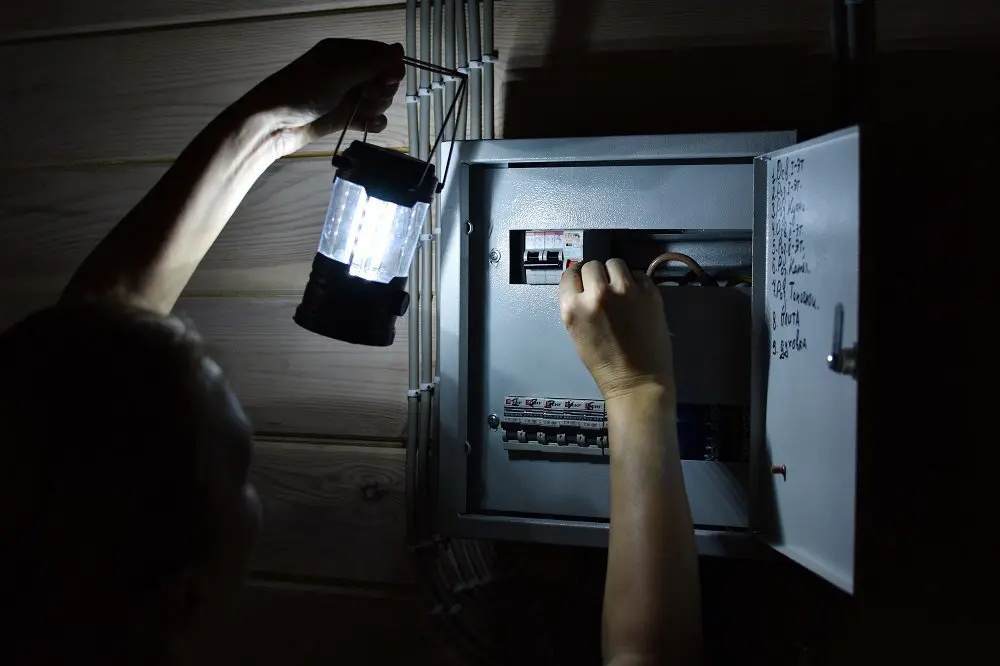Most homes include a circuit breaker, a safety device to prevent overloads and short circuits in your power system. When the breaker senses excess current or a potential issue, it automatically cuts off the power flow to prevent damage.
What is a Circuit Breaker?
A circuit breaker is an important safety feature in your home’s electrical system. It protects the circuit from damage due to overloading or short circuit by automatically cutting off the flow of electricity when necessary. A circuit breaker can trip or turn off if it detects a problem, such as too much current flowing through the circuit. In this case, it is essential to identify and address the issue before resetting the circuit breaker. This can prevent damage to your electrical system and protect against fire hazards.
It is also essential to pay attention to tripped circuit breakers, as they may indicate issues with your electrical panel that need to be addressed promptly for the safety of your home and family. Overall, knowing how circuit breakers work and regularly checking for tripped breakers can help ensure the safety of your electrical systems.
What Causes a Circuit Breaker to Trip
Have you ever been in the middle of using a power tool or appliance and suddenly everything shuts off? Chances are that your circuit breaker has tripped. But what exactly causes this to happen? The circuit breaker protects your electrical system from overloads or short circuits. Here are some reasons why your circuit might trip:
- Overloading the circuit: One of the most common reasons for a circuit breaker to trip is that the circuit is overloaded. This occurs when too many devices are plugged into the circuit, causing the electrical current to exceed the safe limit. If this happens, the circuit breaker will trip to stop a fire or other damage from occurring.
- Short circuits: Another reason for a circuit breaker to trip is because of a short circuit. A short circuit happens when there is a break in the electrical path, causing the current to flow through an alternate route. This can cause excessive heat to build up, eventually leading to a fire. Circuit breakers are designed to trip to prevent this from happening.
- Ground faults: A ground fault is another type of electrical problem that can cause a circuit breaker to trip. A ground fault occurs when there is a break in the insulation surrounding an electrical wire, allowing the current to flow into the ground instead of through the intended path. This can be dangerous as it can create an electrical shock hazard. Circuit breakers are designed to trip to prevent this from happening.
- Improper wiring: If a circuit breaker trips and there doesn’t seem to be any apparent reason why, it could be due to improper wiring. This could be something as simple as a loose wire or a bad connection. It’s always best to have an electrician look at your wiring if you suspect this might be the problem.
- Faulty circuit breakers: In some cases, the problem may not be with your electrical system at all, but with the circuit breaker itself. Circuit breakers can become worn out and eventually stop working correctly. If you suspect that your circuit breaker is faulty, it’s best to have it replaced by a professional electrician.
What You Can Do If Your Circuit Breaker Trips
If your circuit breaker trips, it’s essential to act quickly. Here are some small steps you can take in case your circuit breaker trips:
Step 1: Turn Off Your Appliances and Fixtures
First, turn off any appliances or fixtures that may be using electricity. This can include high-powered machines like your washer and dryer, and more minor things like electric heaters and hair straighteners.
Step 2: Make That Switch
Next, switch off the circuit breaker itself before resetting it. When you turn it back on, ensure all your appliances and fixtures are still turned off.
Step 3: Check Your Work
Finally, double-check any wiring or electrical work to ensure that everything is connected correctly and not causing an overload on the circuit.
If these steps do not solve the issue or if you feel unsure about anything, it’s always best to call a licensed electrician for assistance. Taking care of tripped circuit breakers can help prevent damage to your appliances and even potentially dangerous electrical fires.
What Should I Do If My Circuit Breaker Keeps Tripping?
Call a professional as soon as possible and move essential appliances on that circuit to a circuit that is working. Let a professional diagnose the issue because it could be serious and may need immediate attention.
Call Asbury Electric for a Reliable Electrician in Gloucester, VA
It can be frustrating when your circuit breaker trips and cuts off power to one or more areas of your home. While trying to handle the problem yourself may be tempting, it’s important to remember that electricity can be dangerous and should not be tampered with without proper training and experience.
That’s where Asbury Electric comes in. Our team of certified professionals is here to handle any electrical issues you may encounter, including circuit breaker tripping. We will quickly and efficiently identify the cause of the problem and ensure that your circuit breaker is operating properly to keep your family safe.
Don’t risk injury or damage – if your circuit breaker trips, reach out to our skilled professionals today. Give us a call at (757) 768-7147 or contact us online for all of your electrical needs. Our electricians are standing by to assist you.

